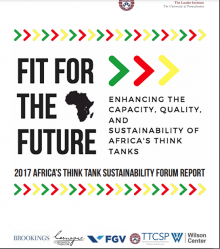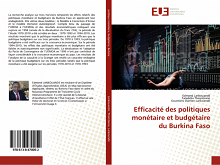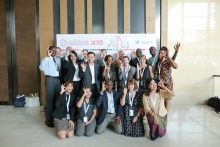REPORT: Africa’s Think tank Sustainability FORUM REPORT, Washington, DC, November 3-4, 2017
The rise of Africa’s think tanks can be attributed to a better understanding of what is needed to bring about successful growth and development, moving away from the “one-size-fits-all” formula of the previous years to a recognition that appropriate solutions are unique for each country’s situation. The new environment is fruitful territory for national level think tanks who can explore, in depth, the customized policy options needed in their country’s environment.
A recent article pointed out that: “Such organizations (think tanks) can play a key role by serving as catalysts for ideas and proposing practical solutions for policy problems. They can also act as bridges between governments, business and civil society. They tend to form partnerships with global think tanks and organizations, sharing in the experience of others and applying this to their own unique, locally focused research.”
In the face of major shifts both in private and public-sector support for think tanks in Africa, as well as the organizational challenges they face, an urgent effort is needed to raise awareness of the think tank sustainability crisis in Africa and to assist think tanks in the region with resources and capacity building that will enable them to meet these critical challenges. At the first Africa Think Tank Summit in 2014 in South Africa, Dr. Frannie Leautier, the then Executive Secretary of ACBF, reported that 30% of Africa’s think tanks may close or be in serious crisis. Since that time, the TTCSP has been working to raise the sustainability question and support the think tank community in the region through research, summits and networking. Our fear is that we will only realize the full magnitude of this crisis after a large number of think tanks have disappeared from the fragile think tank eco-system in Africa.
Understanding the gravity of the situation, The Brookings Institution, The Wilson Center, Fundação Getulio Vargas, Getúlio Vargas Foundation- FGV (Brazil), the Carnegie Corporation of New York, and the Think Tank and Civil Societies Program, University of Pennsylvania joined together to convene a group of the leading think tanks in Africa, public and private donors and policymakers to identity strategies and programs to address the think tank sustainability crisis in Africa. The Fit for Purpose: Enhancing the Capacity, Quality and Sustainability of Africa’s Think Tanks Forum took place in Washington, DC on November 3 and 4, 2017. The Forum explored how to strengthen the capacity and sustainability of think tanks so that they can continue to support Africa’s development.
However, while many will agree that think tanks have a substantive role to play in this regard, their effectiveness in carrying out this task will depend on the appropriateness and relevance of their own internal structures and capacities. Hence, this Forum not only focused on the substantive areas of support that think tanks can offer to governments and policymakers, but it also explored options to strengthen think tanks and make them fit for the purpose of supporting the implementation of key economic, social and good governance policies and programs.
Coherent implementation of both agendas will pose a challenge for policymakers in Africa. Despite over a decade-long history of development planning, several African countries continue to experience challenges in designing, implementing and monitoring their development planning frameworks. Think tanks have and will continue to play an important role in supporting the roll out of SDGs, Agenda 2063 in Africa, public-private partnerships and good governance initiatives by providing technical assistance to governments in all aspects of the implementation process. Specifically, implementation of the global and regional agendas will require: advocacy and sensitization about the details of such frameworks; strengthened capacities to integrate such initiatives in national planning frameworks; evidence-based policymaking; and the requisite institutional architecture and skills to monitor or follow-up on implementation outcomes.
In this context, discussions were organized around the following three key themes and were designed to feature some of the best practices and innovation strategies, products and programs that have been developed in Africa and other regions of the world:
- Enhancing the Capacity and Quality of Think Tank Research and Public Engagement: The national and regional development requires finely tuned research, analysis and engagements capacities. Think tanks can only contribute to the development of effective and responsive policies by conducting evidence based research and effectively engaging both policymakers and the public in policy issues that are key to Africa’s development.
- Making Africa’s Think-Tanks Fit for Purpose: Think tanks can only carry out the above tasks if they have the requisite internal capacities and resources to undertake these tasks. What are the best strategies and structures (i.e. institutional architecture) for the policy and funding environment in Africa? Specifically what structures, staffing patterns and strategies, products, methods are best suited for the policy and funding environment in Africa?
- Creating a Sustainable Future for Think Tanks in Africa: The Forum featured some of the best practices and innovative strategies, products and programs that have been developed in Africa and other regions of the world.
Read or download the comprehensive report by following this link…COMPLETE REPORT



